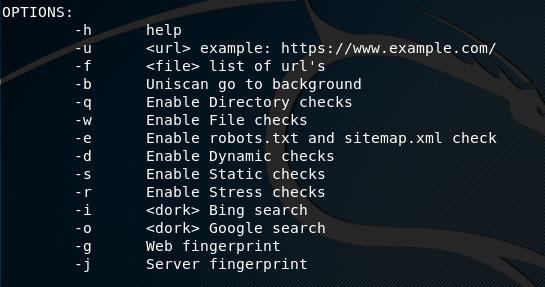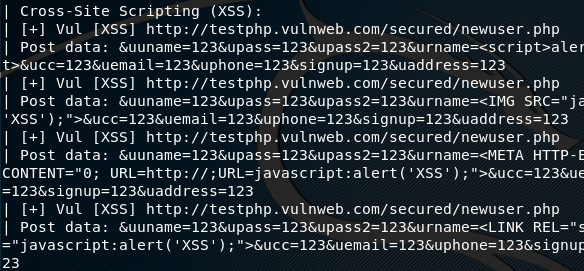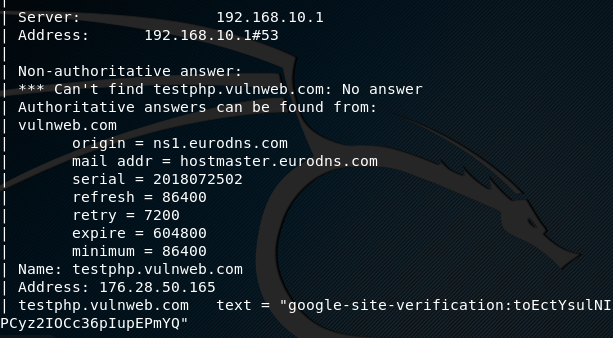Uniscan is an open source tool capable of scanning web applications
for critical vulnerabilities, such as sql injection, blind sql
injection, cross site scripting, remote file inclusion, web shell
vulnerabilities, hidden backdoors, amongst others. Besides vulnerability
assessment, Uniscan can also do a Bing and Google search for finding
domains on shared IP addresses.
Uniscan Installation
Uniscan is a Perl tool that can be installed by running the following command in Linux terminal.
sudo apt-get install uniscan

The command installs Uniscan tool along with its dependencies.
Alternatively, we can also clone Uniscan from github using the following
path.
git clone https://github.com/poerschke/Uniscan

Uniscan Vulnerabilities Assessment
Uniscan comes with two major scanning options i-e (i) dynamic search
and (ii) individual search. In dynamic search, the tool looks for all
the possible vulnerabilities in the target web application. In
individual search, different options can be used to achieve individual
goals like web fingerprinting, server fingerprinting etc. The complete
list of options can be seen in the following screenshot.

Dynamic search is the most comprehensive option in Uniscan. The
following command can be used to do the dynamic search of the target
domain.
uniscan -u http://testphp.vulnweb.com/listproducts.php?cat=4 -d
The tool loads all the available plugins to perform a comprehensive
analysis of the target web application. The tool crawls the urls of the
target domain and checks for possible vulnerabilities, such as
backdoors, SQL injections, blind SQL injections, Cross Site Scripting,
Remote command execution, Remote file inclusion, web shells,
directories, and source code disclosure. If any vulnerable urls are
found, they are displayed on the screen as shown in the following
screenshot.

Uniscan can also be used for scanning the web applications for
specific vulnerabilities/goals using the available options. The optional
flags are appended with the scanning command in the following way.
uniscan –u <target web application> -<available option>
For instance, the following command can be used to do the web fingerprinting,.
uniscan -u http://testphp.vulnweb.com/listproducts.php?cat=4 -g
Uniscan web fingerprinting fetches hosting server information,
installed plugins and modules, web services, Whois information, and some
interesting strings.
Similarly, -j flag can be used to do the server fingerprinting of the web application.
uniscan -u http://testphp.vulnweb.com/listproducts.php?cat=4 -j

Uniscan performs pings and trace route operations to get information
about the server. The type of information that is extracted during the
scan includes server type, server version, server IP addresses, server
origin, mailing addresses etc.
![Author Image]()







Nice. great Article Thanks..
RépondreSupprimerdomchimp.com/tools/server-security-scanner
RépondreSupprimer